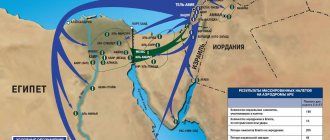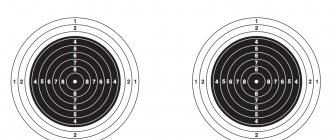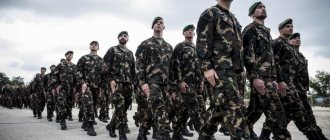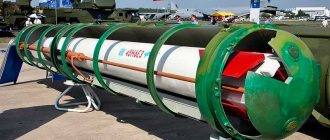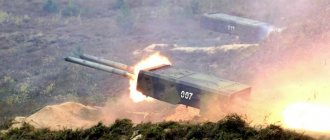The Israeli military is called the IDF, which stands for Israel Defense Forces (IDF). The formation was organized in 1948. Almost a quarter of the budget is spent annually on the combat effectiveness of the armed forces and the defense of the country. Boys and girls can serve here on a voluntary basis and by conscription.
Alfa Israel Assistance Company Ltd guarantees a competent solution to issues that arise after moving to Israel for permanent residence. We also provide comprehensive subscription services and provide concierge service to new repatriates who are not ready to transfer the center of their vital interests to Israel.
Conscription age and terms of military service
All Israeli citizens of military age from 18 to 27 years old must undergo training in the IDF. Persons with permanent resident status and repatriates can receive a summons.
The period of military service for men is 36 months, for women – 24 months. Upon completion of their military duty, soldiers and officers are included in the reservists. After the end of their military duty, military personnel can continue military service on a contract basis. The number of contract soldiers is no more than 15% of the total army.
Deferment and release from the army
The IDF is a place where important community connections are formed. This is a great social institution that can serve as a springboard for a career. Many Israeli companies prefer to hire specialists with military experience. Therefore, Israeli citizens strive to join the combat troops, military police or security forces. Evasion from military duty occurs only if there are legal grounds.
The following categories of persons are exempt from the established conscription procedure:
- Students of religious schools.
- Married girls of military age.
- Girls who were 20 years old or older at the time of conscription, boys 23 years old and older. They are not called up for military service, but can be enlisted in the IDF at their own request.
- Israeli women with children.
- Repatriates of both sexes with children.
- Girls who, due to their religious beliefs, cannot serve in the armed forces. They are offered alternative service.
- Persons who cannot fulfill military service due to unfitness for health reasons.
If an Israeli is studying at a higher educational institution during the conscription campaign, then he is entitled to a deferment.
Alfa Israel Assistance Company Ltd specialists will provide full advice on the issue of who is liable for military service, how you can get a deferment from the army, what responsibilities and rights repatriates have.
State of the Israeli Air Force and Navy
Traditionally, in the Israeli Armed Forces, the ground forces are in close cooperation with the Air Force and the Navy. The IDF Air Force is the strongest in the Middle East. This is confirmed by qualitative and quantitative composition. Israeli Air Force pilots are considered the elite of the armed forces. The technical equipment of military aviation looks no less brilliant. The Air Force is armed with American F-15 Eagle fighters. Front-line aviation is represented by 240 F-16 Fighting Falcons. Since 2005, the latest F-16I “Sufa” fighters have been supplied to aviation equipment.
F-16
Front-line aviation, whose functions include supporting ground forces, also has helicopter units. The combat helicopter fleet is mainly represented by American-made AH-64 Apache and AH-1 Cobra.
In addition to front-line aviation, the Israeli Air Force has a large number of aviation reconnaissance aircraft and a fairly large fleet of transport aircraft. Starting in 2010, the Israeli Air Force began a large-scale program to equip aviation units with unmanned aerial vehicles. As an operational reserve, the Air Force has 2nd and 3rd generation aircraft, including 140 F-4E Phantom-IIs, about a hundred A-4 Skyhawk attack aircraft and more than a hundred Israeli Kfir fighter-bombers.
Kfir
To summarize, we can say that Israeli aviation is strong in technical terms. The latest technology is in the capable hands of pilots who rely on a well-functioning control system. The use of long-range radar reconnaissance aircraft as guidance tools increases the combat capabilities of the IDF Air Force and makes Israeli aviation the dominant deterrent factor in the region. Pilots and service personnel of the Israeli Air Force have a high level of military-technical and combat training that meets the requirements of modern air combat.
Israeli Air Force pilots
The Israeli Navy includes a formation of surface ships and a formation of submarine forces. The surface component is represented by missile boats of the Saar 4.5 type, built in Germany, and corvettes of the Saar 5 type, also built in German shipyards.
Corvettes provide stability to the formation of missile boats and serve as command and staff centers for the Navy in the Red and Mediterranean Seas. The striking force of the fleet can be considered submarine forces. The three Dolphin-class submarines built in Germany are 4th generation submarines and can carry both torpedoes and missiles. The submarine force includes units of submariners. Patrol and security functions are performed by patrol boats and whaleboats equipped with small arms and anti-aircraft weapons. In general, the Israeli Navy is considered combat-ready and meets the requirements of modern naval weapons. In close cooperation with the Air Force, the Navy can successfully confront a potential enemy in the Eastern Mediterranean and the Red Sea.
Submarine Dolphin
Deferment from the army for non-residents
Not every repatriate of military age remains to live in Israel. If he is in the country for less than 120 days and is not a resident, he is entitled to a deferment from military service. But the issue should be resolved not on Israeli territory, but at the Israeli Consulate in the country of current residence. You must regularize your draft status upon reaching the age of 16 years and 4 months. For this purpose, a candidate for military service in the IDF should report to the Consular Section of the Embassy.
Here he must submit a request for a deferment from conscription or provide documents that will allow the conscript to be released from military service. For deferment purposes the following are provided:
- Identity document.
- Copies of both parents' passports.
- Evidence from which it follows that the center of life of the applicant and his family is not in Israel, but in the country of his current location. This could be certificates from the child’s place of study, parents’ place of work, information on paying taxes, papers confirming home ownership, utility bills, and more.
The conscript fills out a form requesting a deferment of service in the Israel Defense Forces. If one of the parents continues to live in Israel, then the Embassy must submit a written statement from him that the child lives with his mother (father) in another country.
After applying for a deferment, you need to check your status after a while. The fact is that the decision to postpone the conscription period is made not by the Consul, but by the leadership of the IDF. In this situation, the representative of the diplomatic mission acts as a mediator between an Israeli of military age and the IDF.
People with special needs serve in the Israeli army
Israel has a law on compulsory military service. There are a lot of official reasons not to be drafted - and it is even more curious that many people who seem to have no opportunity to join the army overcome obstacles according to the principle “If you can’t, but you really want to, then you can.”
As a result, in the IDF, despite the resistance of the draft commissions, not only those who are flat-footed and nearsighted serve in the IDF (these factors, according to the Israeli assessment system, do not even reduce the medical profile of the conscript), but also those who are deaf, there are soldiers with cerebral palsy and Down syndrome.
The IDF finds a suitable position for each individual, taking into account their individual characteristics - for example, soldiers with autism spectrum disorders often have incredible analytical and computational abilities, which are invaluable in logistics and intelligence analysis.
Call
Boys and girls are recruited for military service. They can receive their first summons at age 17. Lists of citizens and permanent residents are regularly updated, so the army department has a complete and up-to-date list of people of military age.
Avoidance of military service is rare in Israel. But if the person to whom the summons was sent does not appear at the recruiting office within 21 days from the date of its receipt, he is officially declared a deserter.
The summons is sent in an envelope containing tickets for a special bus flight that will take the conscript to his destination and back.
When you first visit the lishkat giyus (recruitment center), you must:
- Provide personal data regarding your actual place of residence, registration, telephone number.
- Pass an oral exam on your knowledge of Hebrew.
- Pass a psychometric exam. Testing is necessary to assess associative thinking and logic.
- Pass a medical examination.
The last point is very important, since it will determine which branch of the military the conscript ends up in. During the examination, parameters are checked - height, weight, blood pressure. General tests are performed. Reflexes and vision are checked. In case of unsatisfactory health, a citizen liable for military service is sent to a doctor, who issues an appropriate conclusion.
Health status, knowledge of Hebrew and psychometric testing are assessed in points. Based on their totality, the serviceman is assigned a “profile”, according to which he can be sent to one or another branch of the military. So, if a conscript scores from 0 to 21 points, he is not subject to military service. Maximum scores - from 82 to 97 - allow you to choose one of the combat units. It is an interesting feature of the IDF to allow a conscripted Israeli to choose both the branch of service and the position in which he would like to serve.
To determine the direction, the conscript fills out a questionnaire in which he indicates three positions, where the first is the most desirable. According to statistics, 98% of girls and boys end up in units in accordance with their wishes.
About a month after the first visit to the recruiting station, the conscript is called for a personal conversation with the officer. After a while, the conscript is sent to basic military training, and then transferred to the appropriate branch of the military.
Alfa Israel Assistance Company Ltd is the Israel expert. We provide full information support to our clients during repatriation. We resolve related issues. After receiving an Israeli passport, our high-quality assistance will guarantee comfortable adaptation and quality management of your affairs while you are abroad.
Procedure for joining the Israeli army
The selection of IDF soldiers is an important procedure on which the quality of the Israeli armed forces depends. Every Israeli receives a summons from the Tsav Rishon recruiting station at the age of 17. For this purpose, there is a scheme for transferring information about citizens or permanent residents of Israel from the Ministry of Internal Affairs to the IDF mobilization department. The lists are constantly updated, so current data is transmitted to the army department, and boys and girls have virtually no chance of “not getting on” this list.
There is quite a lot of competition for some types of IDF combat units: 5–10 people per place. This applies to special forces units, as well as those that use special equipment
Israeli citizens who have been living abroad for a long time can take advantage of special conditions: after receiving the summons, they need to come to the consulate and receive a deferment for the period of residence abroad.
The summons contains information about the need for pre-conscription conscripts to appear at special institutions to pass tests for suitability for military service. The results of testing health, mental status, intellectual development and physical fitness make it possible to assess the potential of a future recruit. This will make it possible to determine in which troops the conscript will bring maximum benefit and send him to serve in a suitable unit.
There is quite a lot of competition for some types of IDF combat units: 5–10 people per place. This applies to special forces units, as well as those that use special equipment. There are a number of other “prestigious” places for military personnel. Thus, test results become the main basis for competitive selection: conscripts try to show their best side in order to increase their chances of getting into the desired unit.
Conscription of repatriates into the army
Within 6 months after moving to Israel for permanent residence, persons of military age must register at a conscription office. The summons (tsav rishon) for military service comes no earlier than 12 months after aliyah.
Girls and boys are entitled to the following terms of military service:
| Age, years | Lonely boys | Family men | Women |
| Service life in months | |||
| From 18 to 19 | 32 | 24 | 24 |
| From 20 to 21 | 24 | 18 | 12 |
| From 22 to 27 | Voluntary conscription for 18 months or more | ||
| Over 28 | Exemption from military service | ||
For repatriates who arrived in Israel before their 18th birthday, the period of military service is determined the same as for native Israelis, that is, 3 years for men and 24 months for girls.
Having citizenship of another state, as well as undergoing compulsory military service in it, does not exempt a repatriate aged 18 to 26 years from military service to Israel. By decision of the draft commission, the term may be shortened. But for this you need to present documents confirming previous service in the army. Evidence may include:
- Military ID.
- Work book with the corresponding entry.
- Certificate from the military registration and enlistment office or military unit.
An important point is that repatriates of military age can receive a summons even if they do not live in Israel. Therefore, if an Israeli citizen does not plan to serve in the Israel Defense Forces, then he must receive an exemption or deferment.
For repatriates, joining the IDF is not only army experience, but also additional educational opportunities. Here you can learn a military profession, which after demobilization will allow you to get a good job. In addition, when serving in the army, all benefits provided by the Ministry of Aliyah and Absorption are retained.
Alfa Israel Assistance Company Ltd helps repatriates in resolving numerous issues in Israel, including military service in the IDF. We provide a personal manager in Israel to resolve situations of any complexity.
New in blogs
The Israel Defense Forces, also known as the army of the State of Israel and its main security organ, is known throughout the world under the acronym IDF
Israeli military doctrine
The IDF was founded two weeks after the founding of the state, during the War of Independence. The provisional government led by David Ben-Gurion decided to create an army, and on May 26, 1948, David Ben-Gurion signed the “Decree on the Israel Defense Forces.” Let me remind you that since 1948, the Israeli army has taken part in more than 10 major military conflicts in the Middle East.
By the beginning of June 1948, an agreement was signed between the leadership of the Haganah (Israel Galili and Levi Eshkol) and the leaders of other underground paramilitary organizations, the Irgun (Menahem Begin) and LEHI (Natan Yalin-Mor, Israel Eldad), that their combat units will be integrated into the IDF. The exception was the divisions of these organizations in Jerusalem, which was not then subject to Israeli sovereignty. Since the majority of the IDF consisted of members of the Haganah, it largely preserved its organizational structure.
The method of using the Israeli army - the doctrine of action - was developed in 1949 by a committee chaired by Colonel Chaim Laskov. The doctrine was based on geopolitical realities:
Israel is inferior in population to its neighbors and in the foreseeable future will always be forced to wage war against a numerically superior enemy. The dispute with neighbors is not a disagreement over borders, but a rejection of the very fact of Israel's existence. Israel's enemies will wage a war of destruction against it. Given the geographical realities, as well as the enemy's superiority in manpower and equipment, in the event of war, Israel cannot count on victory through the destruction of the enemy. The real goal should be to inflict such damage on his armed forces as to put them out of action for as long as possible. The small territory, very rugged borders and the proximity of population centers to the front lines deprives Israel of any strategic depth. In the narrowest zone, the distance from the border to the sea is only 14 km. There are no natural barriers to defense. Israel cannot fight a long war. War makes it necessary to mobilize such a huge percentage of the population that the economy will simply cease to function within a few weeks.
Conscript service in the Israeli army
The Military Service Law establishes two types of compulsory military service in the Israel Defense Forces - conscript service and reserve service.
By law, all Israeli citizens, including those with dual citizenship and those living in another country, as well as all permanent residents of the state, upon reaching 18 years of age, are subject to conscription for service in the IDF. The term of military service is 36 months, for women - 24 months. The law applies to Jews and (non-Jewish citizens of the state), to Druze and Circassians. Bedouins, Christians and Muslims can volunteer to serve in the army.
Exemptions from conscription are granted to women who were married at the time of conscription or for health reasons, men only for health reasons, and repatriates only who arrived in the country at the age of over 26 or have children.
Men studying in Jewish religious schools (yeshivas) receive a deferment for the duration of their studies, which can last a lifetime. Religious girls have the right to be exempt from military service or to perform alternative service - in hospitals, educational institutions, and volunteer organizations. Thus, despite the fact that all Jewish citizens of Israel are officially required to perform military service, the vast majority of ultra-religious Jews do not serve in the army, which is a source of tension in society.
The difference from many other armies is that the majority of women in the country serve in (women in Israel are liable for military service). However, about a third of women receive a deferment or complete exemption from the army (pregnancy, religious reasons). Upon completion of military service, most women are exempt from annual military training.
In the War of Independence of 1948, due to the difficult situation of the country, women took an active part in the defense of Israel. With the end of the war, women practically stopped being sent to combat operations. Currently, the majority of women are conscripted into non-combat units. As of 2005, women are allowed to serve in more than 83% of the IDF units.
As of 2009, women serve in the artillery troops and the Magav border service. There are also infantry units where men and women serve together, such as the Caracal Battalion.
Reserve service in the Israeli army is mandatory. After completing regular service, all privates and officers are called up annually for reservist training for up to 45 days. Active reservist service - “Shirut Miluim Pail” continues until the reservist reaches the age of 45 years. It is these reservists that Israel is now mobilizing in numbers of about 100 thousand people.
Structure of the current Israeli army
The Israeli army consists of three branches of the armed forces: ground, air force and naval forces. The army is headed by the General Staff. The Ground Forces, Air Force and Navy have separate commands reporting to the General Staff.
The ground forces are divided into three military districts: Northern, Central and Southern. After the Gulf War, the Logistics Directorate was also created.
The General Staff consists of 6 directorates: Operations, Planning Directorate, Personnel Directorate, Intelligence Directorate, Computer Services Directorate and Technology and Logistics Directorate.
Some figures for the active Israeli army as of 2011:
The country's military budget is $15.8 billion
Total number of regular armed forces: 176.5 thousand people
Paramilitary forces: 8.05 thousand people. (including border guard - 8 thousand, coast guard - 50 thousand people)
Duration of service: officers - 48 (men) and 36 (women) months, military personnel of other categories - 36 (men) and 24 (women) months
Reserve: 565 thousand people (ground forces - 380 thousand, air force - 24.5 thousand, naval forces - 3.5 thousand people)
Mobilization resources: 3.11 million people, including 2.55 million fit for military service
Ground forces: 133 thousand people, 3 territorial commands, border protection command, 4 corps headquarters, 2 armored, 4 infantry divisions, 15 tank, 12 infantry and 8 airmobile brigades. The organizational structure of formations depends on the operational situation.
Reserve: 8 armored divisions.
Israeli army weapons
As of 2010, the Israeli army consisted of:
Ground forces: more than 20 launchers of operational-tactical missiles; 3,657 main battle tanks (including 1,681 Merkava, 711 M60A1/3, more than 100 T-55, over 100 T-62, 111 Magakh-7, 561 M-48), about 10,420 infantry fighting vehicles and armored personnel carriers, 408 infantry fighting vehicles, 456 towed artillery guns of caliber 105, 122, 130 and 155 mm, 960 self-propelled howitzers (105, 155, 175 and 203 mm), 212 MLRS, 4,132 mortars (2,000 52 mm, 1,358 81 mm, 652 120 mm, 122 160 mm), more than 1225 ATGM launchers, more than 1,300 anti-aircraft artillery guns, 1,250 MANPADS.
Air Force: 35 thousand people. (of which 20 thousand are conscripts - mainly in air defense), 460 combat aircraft, 100 combat helicopters.
Airplane and helicopter fleet: 72 air superiority fighters F-15 (A, B, C, D), 25 heavy strike multi-role fighter-bombers F-15 I, 260 light multi-role fighter-bombers F-16 (A, B, C and D), 102 F-16I light multirole fighter-bombers equipped with Israeli avionics. These are the so-called first line aircraft, in a state of full combat readiness.
In addition, there are about 140 “Phantoms” of various modifications in “safe storage”, i.e. in reserve (F-4E “Phantom II”, RF-4E “Phantom II”, F-4E-2000 (“Phantom-2000”) )), about 120 Skyhawk attack aircraft of various models (A-4H/N, TA-4H, TA-4J), and about 140 Israeli-made Kfir multi-role fighter bombers (C-2/TC-2/C-7 /TC-7/CR)
Auxiliary and special aviation The IDF has the following fleet of combat vehicles: 5 RD-10, Boeing 707, 2 Boeing 707 Falcon, 3 (according to other sources -6) Gulfstream G550 (Electronic reconnaissance aircraft), 2 EU-130, 3 IAI-1124 “Sea scan”, 5 KS-130N, 11 S-47, 6 IAI-202 “Arava”, 8 Do-28, 2 “Islander”, 4 Beach 200 “Super King Air”, 20 Cessna U-206 , 12 Beach 80 Queen Air, 43 SM.170, 17 Grob G-120 (trainer), 26 TA-4N and J, 55 AN-1E and F Cobra, 33 Hughes 500MD, 40 AN-64A, AH -64D (18 vehicles ordered), 7 AS-565SA, 41 CH-53D, 24 S-70A, 14 UH-60, 34 Bell 212, 43 Bell 206.
UAVs: “Scout”, “Sicher”, “Pioneer”, “Firebee”, “Samson”, “Deline”, “Hunter”, “Hermes-450”, “Sky Eye”, “Harpies”.
SAM: “Arrow”, “Hawk”, “Patriot”, “Chaparral” (withdrawn from service in 2003).
Navy: 8.5 thousand people. (including 300 commandos and 2.5 thousand sr. sl.), 3 Dolphin submarines, 3 Saar-5 corvettes, 10 missile boats (8 Saar 4.5 and 2 Saar-4), 41 patrol boats (15 “Dabur”, 13 “Super Dvora” MM/2, 6 “Super Dvora” Mk3, 4 “Shaldag”, 3 “Stingray”), test vessel.
Naval aviation: 25 helicopters (8 Eurocopter AS-565SA, 17 Bell 212).
American military aid to Israel
On July 23, 1952, the United States and Israel entered into a bilateral agreement on military assistance - the Mutual Defense Assistance Agreement (TIAS 2675), in accordance with which the supply of American weapons and military equipment to Israel began.
On September 26, 1962, the US government, in a change to its previous policy, agreed to sell the Hawk air defense system division to Israel (thus, Israel became the first country that was not part of the NATO bloc to receive these weapons). The State Department, however, stated that this delivery was intended to compensate for the supply of offensive weapons by Soviet bloc countries to Israel's Arab neighbors and maintain the balance of power in the Middle East.
In 1968, the US government authorized the sale of 48 A-4 Skyhawks and 50 F-4 Phantoms to Israel.
In November 1971, the United States and Israel entered into an agreement under which Israel received the right to manufacture under license certain types of American weapons, ammunition, military equipment and military equipment.
In 1973, after the outbreak of the Yom Kippur War, the United States supplied Israel with a significant amount of weapons, ammunition and military equipment via an "air bridge" (Operation Nickel Grass).
In 1976, the US Congress adopted the Symington Amendment, and in 1977 the Glenn Amendment, which established a ban on the supply of weapons from the United States to countries that are pursuing nuclear weapons programs. However, the Cyminton-Glenn amendments have never been applied to Israel, which allegedly possesses such weapons and views them as a means of delivering a “second strike” against an aggressor in the event of an attack.
On November 30, 1981, the United States and Israel signed a “Memorandum of Understanding on Strategic Cooperation.”
In 1990, Israel signed an agreement with the United States to participate in the “storage of military reserves for US allies” program, according to which six warehouses for storing weapons, armored vehicles and ammunition were equipped in the country. Initially, the cost of weapons in warehouses was $100 million; in 1991, after the Gulf War, this volume was increased to $300 million, then to $400 million, and in December 2009 to $800 million. Although the weapons do not belong to Israel, under the agreement the IDF can access the warehouses and use the stored weapons "with US permission" or "in an emergency."
In preparation for the Gulf War (1991) and the creation of a coalition against Saddam Hussein with the participation of Arab countries (and, accordingly, without Israel), the United States guaranteed the destruction of Iraqi Scuds during the first days of the operation and protection from Iraqi fire. For this purpose, 7 batteries of Patriot air defense systems were deployed on Israeli territory, which ultimately failed to intercept the missiles launched at Israel.
In 1995, as part of the “special supply program,” the United States was “ready to donate” to Israel 14 Cobra combat helicopters and 30 thousand M-16 assault rifles, in addition to the “previously supplied” two batteries of Patriot air defense systems and 75 F-15 fighters and F-16, 450 TOW ATGM launchers, 336 trucks and tractors, 10 UH-60 Black Hawk helicopters, a batch of Harpoon anti-ship missiles and 650 anti-tank missiles for AH-64 helicopters.
In 2000, the United States provided $200 million to build and equip two training bases designed to train reservists.
In 2008, radio-electronic equipment was received from the United States (an-TRY-2 centimeter-range radar and a mobile terminal for receiving JTAGS data).
Military assistance from the “brotherly” United States continues to this day, no one knows its real volumes.
Weapons of the future: special Israel
Reserve service
The IDF reserve includes soldiers up to 40 years of age and officers up to 45 years of age, after completing compulsory military service. Women make up the operational reserve up to 38 years of age. The age of those liable for military service may be increased to 49 years if they:
- Military doctors.
- Army rabbis.
- Truck drivers.
- Medical emergency specialists.
- Emergency service personnel.
- Persons with emergency medical care skills.
Reserve forces may be called up into the army under the following circumstances:
- Declaration of war.
- Conducting combat operations.
- Large-scale natural disasters and other emergency situations.
To maintain the reserve in combat-ready condition, reserve servicemen are annually called up for training (exercises) for a period of 2 to 5 weeks. Married girls and women with children are not subject to conscription.
The IDF is obliged to notify reservists about the date of military training:
- Checking the combat readiness of the operational reserve within 1-3 days - notification 12 days in advance if the notification comes by mail or 7 days in advance if the summons is handed in.
- Military training for a period of more than 4 days - notification 2 months in advance.
If reservists are needed to participate in resolving an emergency, those liable for military service must report immediately.
If the call is not related to extreme necessity or an emergency situation, the reservist may notify the military command of the impossibility of participating in the training camp. To do this, you need to present documents confirming your personal circumstances.
If a person liable for military service at the time of call is participating in an important project or must be on a business trip, the employer has the right to send a request to the Commission for the Coordination of Reservist Duties to defer participation. The commission members decide what is more important: maintaining the combat effectiveness of the IDF reserve or fulfilling civilian duties. The application is considered if submitted no later than 30 days before the fees, if their duration is more than 6 days.
Reservists are entitled to compensation for the loss of potential earnings in full or in part. The payment is made by the Ministry of Defense. It sends the required amount to the National Insurance Institute. From there, the funds are transferred to the employer, who transfers them to the employee’s account.
If a reserve serviceman performs military service in the reserve for more than 32 days during the year, then he is entitled to additional compensation - agmul nosaf.
Alfa Israel Assistance Company Ltd specialists provide additional services after repatriation. In Israel, we will provide qualified support in resolving important issues regarding military service, health insurance, opening a bank account and much more.
<Benefits and opportunities for repatriates
Foreign soldiers who decide to move to their historical homeland are entitled to preferential conditions:
- additional leave once a year;
- allowance from the Ministry of Aliyah;
- assistance in paying rent and utilities;
- assistance in finding a job;
- discounts when purchasing air tickets;
- cash benefits;
- deposit into a personal account to buy a home or open your own business.
The funds provided are strictly controlled: they must be used for their intended purpose.
For new repatriates, before joining the ranks of soldiers, they are given the opportunity to attend a language school or special courses - “Nativ” and “Eitan”. They allow you to study the culture and traditions of Jews in more depth.
The army in Israel is a school of life, an opportunity to learn the deep philosophy of the people and receive a quality education. There is no need to be afraid of conscription: the high level of development of the armed forces and the thoughtful organization of the army system turn these few years into an exciting adventure that can change your worldview.
Persons liable for military service living abroad
The obligation to serve in the army applies to Israeli citizens of military age, both permanent residents of the state and those living outside its borders. The recruitment conditions will be as follows:
- The girl and boy left the country after they turned 16 years old. They are required to undergo military service on a general basis.
- Israelis who left the state between the ages of 13 and 16 are given the status of “children of emigrants.” They are subject to mobilization if they return to Israel before they turn 21. If later, they are entitled to a deferment.
- Minors who left the country before the age of 13 may be conscripted into military service if they return to Israel before their 18th birthday.
- Israeli girls who returned to the Holy Land after turning 21 are exempt from military service.
Service in the Israel Defense Forces is not only mandatory, but also prestigious. For repatriates, this is an opportunity to quickly adapt to a new life in Israel, master a sought-after profession, and form social connections.
Alfa Israel Assistance Company Ltd is your reliable assistant in Israel. We will protect your interests and support you in resolving many issues. If you have children of military age, you do not know how to obtain a deferment of military duty in Israel - contact our company for advice. We are always happy to help you.
Still have questions? Don’t want to join the Israeli army? Or maybe, on the contrary, organize a conscription? Submit your application
The IDF has a Bedouin special battalion
Perhaps even the French Foreign Legion will lose to the Israeli army in the range of countries of origin of conscripts. In addition to Jewish repatriates from all over the world, from Ecuador to Japan, citizens who have the right not to serve, but feel obligated to do so, voluntarily serve in the IDF.
There is a separate Bedouin special battalion. There are Circassian fighters. Of course, Druze fighters. During his service, the author met a girl - the daughter of a Filipino worker; she received Israeli citizenship and served with pleasure in the IDF.


